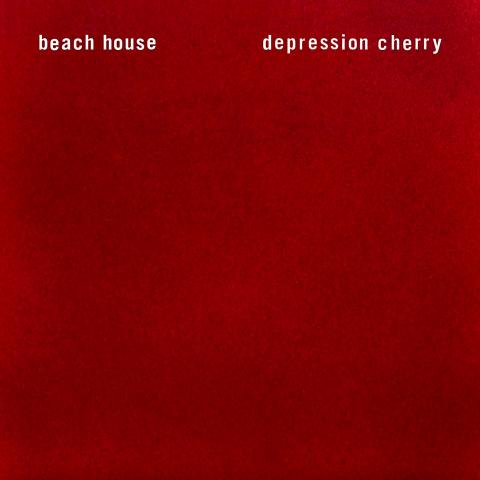Beauty Behind the Madness, The Weeknd, XO/Republic
Abel Tesfaye, the Canadian songwriter who calls himself the Weeknd, used to be pop’s bleakest, creepiest Don Juan. The come-ons he sang in his high, sweet tenor — and in the scratchy moan that sometimes replaced it — were more like warning labels. They detailed how loveless, drugged-out, callous, self-destructive and self-absorbed he could be.
Pleasure was always laced with pain and guilt that reverberated in the music. On the three mixtapes repackaged as Trilogy in 2012 and his 2013 album Kiss Land, nearly every song was a minor-key dirge set in a cavernous, doomy soundscape, often with a repeated refrain that stretched the music toward the obsessive and hypnotic — and away from radio formats.

The Weeknd is a slightly nicer, and much more firmly structured, songwriter on Beauty Behind the Madness, his bid for pop outreach. He has expanded his longtime group of collaborators to include Top 10 hitmakers, among them Stephan Moccio, who helped write Miley Cyrus’ Wrecking Ball, and the ubiquitous Max Martin and his associates.
On this album, clear-cut intros, verses, choruses and bridges have replaced bleary incantations, and the music has moved from the shadowy haze of trip-hop to an emphatic, monumental clarity — high-end pop craftsmanship. The production still conjures huge spaces, but now they are brightly illuminated, with each sound in crisp focus. There are echoes of Peter Gabriel, Depeche Mode and above all Michael Jackson, both in the production and in the way the Weeknd makes his voice tense, plaintive and percussive. The makeover has already paid off in two hit songs that first appeared on the Fifty Shades of Grey soundtrack: Earned It (Fifty Shades of Grey), with Moccio among the songwriters, and Can’t Feel My Face, with Martin and others.
The Weeknd has found new ways to mix darkness and light. Over its danceable backbeat, Can’t Feel My Face equates cocaine addiction with a love affair. In the Night, an even more upbeat Max Martin collaboration (with a triplet undercurrent like Jackson’s The Way You Make Me Feel) sketches the story of a girl damaged by child sexual abuse.

The Weeknd hasn’t given up dirges and self-loathing. Often and The Hills, with glacial baselines under nervous twitches of percussion and electronics, are joyless boasts about wealth, drugs and promiscuity. Dark Times, a bluesy duet with Ed Sheeran carried by a stark electric guitar, starts with the aftermath of a drunken street fight and admits, “In my dark times I’ll be going back to these streets/ Promising everything I do not mean.”
But the emerging, pop-friendly Weeknd knows he has to offer something else: affection and empathy, or at least a semblance of them. Earned It is a relatively un-hedged love song, and so is As You Are, a full-fledged vow of devotion: “Show me your broken heart and all your scars/ Baby I’ll take, I’ll take, I’ll take, I’ll take you as you are.” But at the end, it slows down and fades to an uncertain plea: “Baby, won’t you take me as I am?” The show of vulnerability is pop strategy that works.
— Jon Pareles, NY Times News Service
Depression Cherry, Beach House, Sub Pop
Dream-pop is a set of musical values, and to some extent it has a musical grammar. If it didn’t, nobody would mention Cocteau Twins, Mazzy Star and Angelo Badalamenti soundtracks every time Beach House makes a new record.
But dream-pop is less a genre than a matrix of powerful sounds with nonspecific emotional associations. The sounds are static, consonant harmonies and long tones and slow tempos. The emotional associations are desire and melancholy, rendered through blank sentimentality. The music’s job is to create outlines for your own content; the music becomes what you bring to it.
Beach House has made a new record called Depression Cherry, and it is very pretty, and its affect is strong but shallow. It is withholding ideas so that you can insert your own. How interesting is the record? Well, how interesting is your life?
“You should see,” Victoria Legrand intones in Levitation, the twinkly, beckoning first track of Depression Cherry, the Baltimore duo’s fifth record. “There’s a place I want to take you.”
OK, step in. What do you find? Even as it remains uniformly serene, Beach House’s music has become increasingly visual in its shapes and textures.
Over spare digital thumps, 10:37 has the most affecting and irregular vocal lines, as if the group has been studying Judee Sill records; Sparks has the darkest and deepest atmosphere; the hymn-like Days of Candy, with a 24-member choir, sounds invested with the most effort. You may notice the aspirated breeze of Legrand’s grainless voice more than her half-audible words; you may notice the pulsations of Alex Scally’s organ notes and the design of his guitar sounds — long and sliding arcs, azure middle-register repetitions — more than what they are accomplishing in the limited movement of the songs.
You’ve heard these sounds before, and you’ve felt these feelings before. The added value here, if you want it, is the organization and rigor of the blankness.
— Ben Ratliff, NY Times News Service

From the last quarter of 2001, research shows that real housing prices nearly tripled (before a 2012 law to enforce housing price registration, researchers tracked a few large real estate firms to estimate housing price behavior). Incomes have not kept pace, though this has not yet led to defaults. Instead, an increasing chunk of household income goes to mortgage payments. This suggests that even if incomes grow, the mortgage squeeze will still make voters feel like their paychecks won’t stretch to cover expenses. The housing price rises in the last two decades are now driving higher rents. The rental market

July 21 to July 27 If the “Taiwan Independence Association” (TIA) incident had happened four years earlier, it probably wouldn’t have caused much of an uproar. But the arrest of four young suspected independence activists in the early hours of May 9, 1991, sparked outrage, with many denouncing it as a return to the White Terror — a time when anyone could be detained for suspected seditious activity. Not only had martial law been lifted in 1987, just days earlier on May 1, the government had abolished the Temporary Provisions Effective During the Period of National Mobilization for Suppression of the Communist

When life gives you trees, make paper. That was one of the first thoughts to cross my mind as I explored what’s now called Chung Hsing Cultural and Creative Park (中興文化創意園區, CHCCP) in Yilan County’s Wujie Township (五結). Northeast Taiwan boasts an abundance of forest resources. Yilan County is home to both Taipingshan National Forest Recreation Area (太平山國家森林遊樂區) — by far the largest reserve of its kind in the country — and Makauy Ecological Park (馬告生態園區, see “Towering trees and a tranquil lake” in the May 13, 2022 edition of this newspaper). So it was inevitable that industrial-scale paper making would

Hualien lawmaker Fu Kun-chi (傅?萁) is the prime target of the recall campaigns. They want to bring him and everything he represents crashing down. This is an existential test for Fu and a critical symbolic test for the campaigners. It is also a crucial test for both the Chinese Nationalist Party (KMT) and a personal one for party Chairman Eric Chu (朱立倫). Why is Fu such a lightning rod? LOCAL LORD At the dawn of the 2020s, Fu, running as an independent candidate, beat incumbent Democratic Progressive Party (DPP) lawmaker Hsiao Bi-khim (蕭美琴) and a KMT candidate to return to the legislature representing